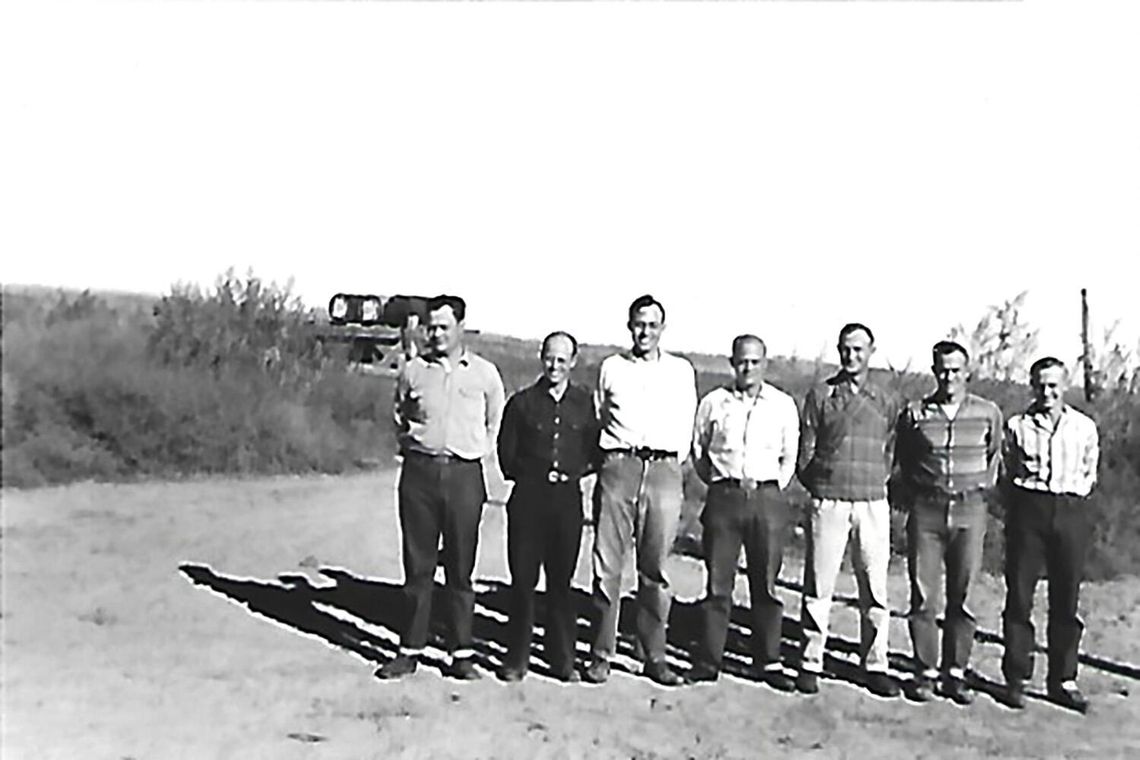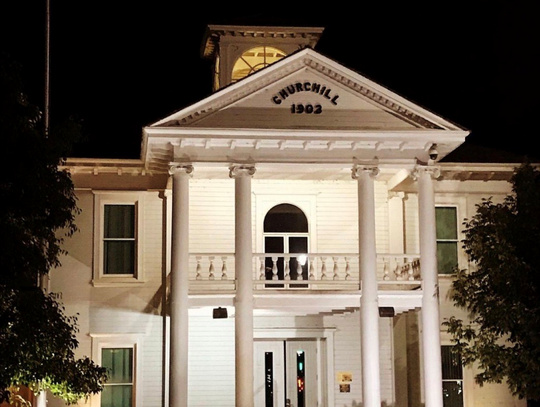Sons of the High Plains: From Farm to University, and Beyond
On a farm outside Lingle, Wyoming, Hugh and Helen Butler raised seven sons between 1922 and 1938, instilling in them a strong sense of family, education, and service. All seven brothers attended the University of Wyoming, with several earning multiple degrees and serving in World War II. Their journey from the windswept plains of Wyoming to various professional paths, including a significant connection to Nevada, illustrates resilience and the pursuit of knowledge.
Hugh Butler, the father, graduated from Colorado Agricultural College in 1918 and managed the University of Wyoming Experiment Farm before homesteading near Lingle. His eldest son, Theodore (Ted), was born in 1922 and set the example for his younger brothers by focusing on agriculture and education. Ted’s studies were interrupted when he was drafted into the Army Air Corps in 1943, serving as a tailgunner on B-24 bombers during World War II. His plane was shot down behind enemy lines, but Ted survived and returned to service, an ordeal that caused their mother’s hair to turn white overnight.
After the war, Ted earned both a bachelor’s and a master’s degree in agriculture and taught at the University of Wyoming for 11 years. He later moved to Nevada, becoming a professor of Agricultural and Industrial Mechanics at the University of Nevada, Reno, where he taught for 23 years. His contributions to Nevada’s agricultural education linked the family’s legacy to the state.
Following Ted’s path, Roy Butler also moved to Nevada after earning a master’s degree in education from UNR. He taught Vocational Agriculture at a high school on a Nevada Indian reservation and later managed the Main Station Field Lab at the UNR. Roy’s commitment to agricultural education in Nevada extended the family's impact beyond Wyoming. Eventually, Roy returned to Lingle to join his brother Glen in building Butler & Butler Quality Cube, an alfalfa hay cube business.
Hugh (Hughie) Butler was born in 1925 and was drafted into the Army during his senior year of high school. He served in the European Theater during World War II, carrying sensitive messages during the Battle of the Bulge and later overseeing German prisoners. After the war, Hughie studied mechanical engineering and spent 40 years working in Montana’s lumber industry, where he also served as an EMT and ambulance driver.
John Butler, born in 1927, witnessed the toll of war firsthand when he delivered the telegram to his parents reporting Ted as missing in action. John earned a degree in Agricultural Economics from the University of Wyoming and worked for the Soil Conservation Service and the Bureau of Indian Affairs. Known for restoring vintage Ford automobiles, John’s appreciation for the land and history was evident in both his career and his hobbies.
George Butler, born in 1929, served in the Korean War before completing his degree in Agriculture. He became a high school teacher of Vocational Education, impacting students first in Wyoming and later in Virginia’s Appalachian Mountains.
Glen Butler, born in 1935, earned a degree in Agriculture with a minor in Education and was named Outstanding Farmer of the Year in Goshen County. He returned to Lingle to manage the family farm, focusing on alfalfa and corn. Glen’s leadership on the farm and his recognition as a top farmer underscored the brothers’ deep agricultural roots.
Jerry Butler, the youngest, pursued his fascination with insects from an early age, earning a Ph.D. in Entomology from Cornell. He became a renowned forensic entomologist at the University of Florida, publishing extensive research and co-authoring a book on butterflies.
The remarkable journey of the seven Butler brothers reflects the power of family, education, and perseverance. From the farmlands of Wyoming to the universities of Nevada and beyond, their shared history, rooted in the soil beneath their feet and the wisdom gained from higher learning, is evidence of the indomitable spirit of those who have ever called the West their home.
Courtesy of Billy Bulter with details from “Sons of the High Plaines: The Journey of Seven Brothers from Farm to University, and Beyond,” by Diane Bulter.









Comment
Comments